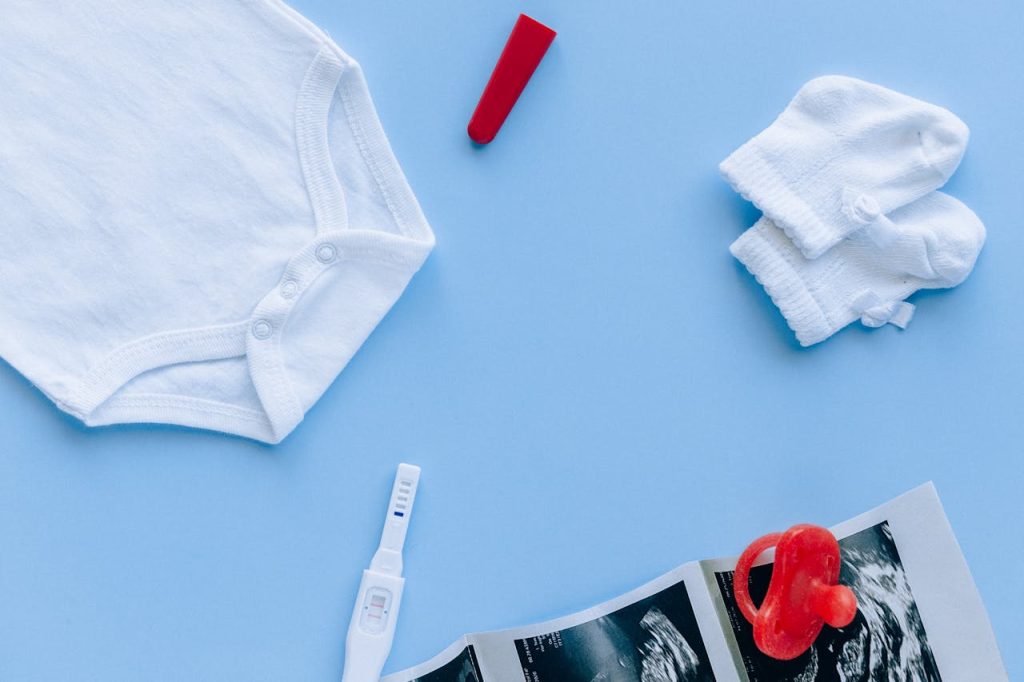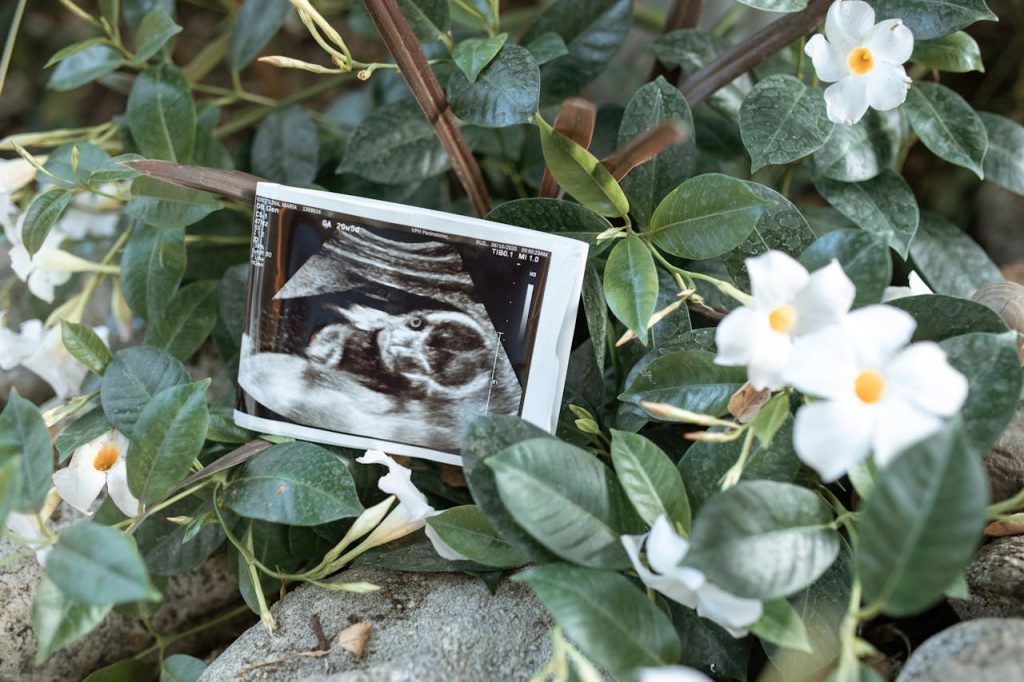First Week of Pregnancy: Overview, Fetal Development, and Body Changes
The first week of pregnancy technically begins on the first day of your last menstrual period (LMP), before conception has even occurred. During this time, your body is preparing for ovulation, when an egg will be released from the ovary and become ready for fertilization. Although there is no developing fetus yet, the body starts making crucial hormonal changes, like an increase in estrogen and progesterone, to create a supportive environment for a potential pregnancy. The uterine lining thickens to prepare for the possibility of implantation, and the ovaries ready themselves to release an egg in the coming days. If sperm meets the egg during ovulation, fertilization can occur, and the embryo will begin its journey toward the uterus. For those trying to conceive, this is a time of careful planning, as tracking ovulation and maintaining a healthy lifestyle can improve the chances of pregnancy. While most women don’t experience noticeable symptoms during this week, the first signs of pregnancy, like fatigue or mood changes, may appear in the following weeks.

Fetal Development and Growth
At the beginning of the first week, there is no actual fetus yet. The fertilization of the egg and sperm has not yet occurred. However, here’s what’s going on at a cellular level:
Menstrual Cycle and Ovulation
- The first week marks the start of your menstrual cycle, and you are likely still menstruating during this time.
- During this week, your ovaries will prepare to release an egg, a process called ovulation (which typically happens around the middle of the cycle).
- If conception occurs during ovulation, the egg will be fertilized by sperm in the fallopian tube. At that point, a zygote is formed, which will begin dividing into multiple cells.
Endometrium (Uterine Lining)
- The lining of your uterus, called the endometrium, thickens in preparation for a potential pregnancy. If the egg is fertilized, it will travel down the fallopian tube to implant in the endometrium around 6-12 days later.
Fertilization and Early Cell Division
- If you do conceive during this week, the fertilized egg (zygote) will begin dividing and developing. At the end of the first week, the zygote has formed a ball of cells and is moving toward the uterus for implantation.
Fetal Size
Since conception has not yet occurred, there is no actual fetal development or growth to track. The process of fertilization and early cell division will take place in the weeks ahead.
In the first week of pregnancy, it might be surprising to know that fetal growth hasn’t actually begun yet. This is because pregnancy is calculated from the first day of your last menstrual period (LMP), even though conception typically happens around week 2 or week 3. This system is used because it is often difficult to pinpoint the exact date of ovulation or fertilization. Therefore, during the first week of pregnancy, the body is preparing for ovulation and possible conception, but no fertilization has taken place.

Pregnancy Symptoms
Although you are still in the early days of pregnancy (or perhaps not pregnant at all during the first week), your body may already begin to signal changes due to hormonal fluctuations. Here are some common symptoms or signs that might occur, although they vary widely from woman to woman:
No Symptoms Yet
In the first week, you may not feel any symptoms. Some women don’t even realize they are pregnant this early, since most early signs (like nausea or breast tenderness) are linked to hormonal changes that typically begin later.
Changes in the Menstrual Cycle
If you are pregnant, your period might be late or absent. However, it’s too early to detect pregnancy using at-home tests because they often require the detection of the hormone hCG (human chorionic gonadotropin), which is produced after implantation.

Hormonal and Physical Changes in Your Body
Hormonal Fluctuations
- Estrogen and progesterone levels are rising during this time. These hormones are key to maintaining your cycle and will continue to rise in the weeks ahead if pregnancy occurs.
- The corpus luteum (the structure left in your ovary after the egg is released) begins secreting progesterone, which helps to thicken the uterine lining to support a possible pregnancy.
Cervical Mucus Changes
- You may notice changes in your cervical mucus at the start of your cycle. If you are nearing ovulation (usually around the middle of the cycle), it may become clear, slippery, and stretchy, similar to egg whites. This type of mucus helps sperm travel more easily to the egg.
Bloating and Gas
- Hormonal changes, particularly an increase in progesterone, can cause bloating, constipation, and gas. These symptoms are often similar to what you might experience during PMS.
Fatigue
- Even in the first week, many women report feeling unusually tired or fatigued, due to rising progesterone levels. This hormone can have a sedative effect on your body, causing sleepiness and lethargy.
Breast Changes
- Some women notice that their breasts may feel sore, swollen, or tender early in pregnancy. This is caused by hormonal changes (mainly an increase in estrogen and progesterone) that prepare the body for potential breastfeeding.
Mood Swings
- Hormonal fluctuations can also lead to mood swings or irritability. You may feel more sensitive or emotional than usual, and this can be amplified by PMS or early pregnancy signs.

Changes in the Uterus and Reproductive System
During the first week of pregnancy, physical changes in the uterus and reproductive system are subtle, but significant processes are already underway to prepare for implantation and early development.
Uterine Lining (Endometrium) Preparation
- The endometrial lining thickens due to increased progesterone levels. This creates a nutrient-rich environment for potential implantation of the fertilized egg.
Hormonal Shifts
- Levels of hormones like estrogen and progesterone rise to support the early stages of pregnancy.
- Human chorionic gonadotropin (hCG) begins to be produced shortly after fertilization, signaling to the body that pregnancy has occurred.
Cervical Mucus Changes
- The cervical mucus thickens to form a protective plug, preventing infections and safeguarding the uterus.
No Noticeable Physical Changes Yet
- At this stage, most changes are microscopic; there are no visible signs of pregnancy or noticeable growth of the uterus.
Technically, in the first week of pregnancy (counted from the first day of the last menstrual period), conception has not yet occurred. Fertilization typically happens at the end of the second week. However, the body is already preparing for pregnancy through hormonal and uterine adjustments. These early changes set the stage for implantation, which happens around week 3.
Why the First Week is Important?
Even though fetal growth hasn’t started, the first week is crucial for setting up conditions for a successful pregnancy. The reproductive system prepares by:
- Building a healthy uterine lining for implantation.
- Maturing eggs in the ovaries.
- Balancing hormones to support potential conception and early development.
What Happens After the First Week?
- Fertilization typically occurs in the second or third week of pregnancy when a sperm meets a mature egg.
- Once fertilization happens, the zygote (fertilized egg) travels down the fallopian tube and starts dividing rapidly.
- Around week 3 or 4, the zygote implants in the uterine lining, marking the beginning of embryonic development.

Conclusion
The first week of pregnancy is a preparatory phase, calculated from the first day of the last menstrual period (LMP), even though conception has not yet occurred. During this time, the body undergoes hormonal changes that stimulate the maturation of an egg in the ovaries and the regeneration of the uterine lining (endometrium) to create a supportive environment for potential implantation. Menstrual bleeding clears the previous cycle’s uterine lining, making way for a fresh, nutrient-rich layer. While there is no fetal development at this stage, these processes are crucial in setting the foundation for fertilization and early pregnancy. Symptoms experienced during this week are typically linked to menstruation and hormonal fluctuations rather than pregnancy itself.

